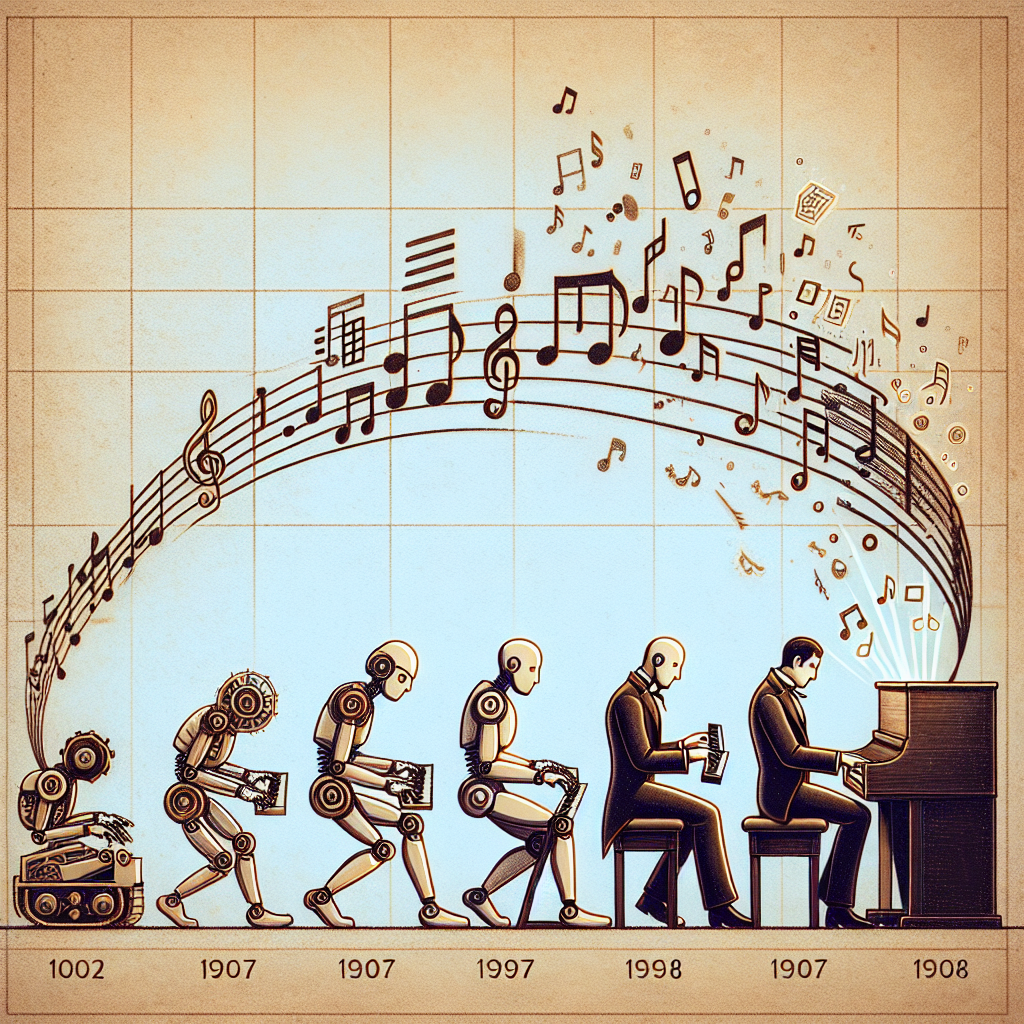AI-generated music is a rapidly evolving field that has the potential to revolutionize the way we create and consume music. What was once seen as a gimmick or novelty has now evolved into a legitimate artform that is being embraced by musicians, producers, and music lovers around the world.
The concept of AI-generated music involves using artificial intelligence algorithms to compose, produce, and even perform music. These algorithms are trained on vast amounts of musical data, from classical compositions to modern pop hits, in order to learn the patterns and structures that make up music. By analyzing this data, AI can generate new music that is original, innovative, and often indistinguishable from music created by human composers.
One of the key advantages of AI-generated music is its ability to explore new and unconventional musical ideas that may not have been considered by human composers. AI algorithms are not bound by traditional rules or expectations, allowing them to push the boundaries of what is possible in music composition. This has led to the creation of music that is experimental, avant-garde, and truly unique.
AI-generated music has also been embraced by musicians and producers as a valuable tool for the creative process. By using AI algorithms to generate musical ideas, artists can quickly explore different melodies, harmonies, and rhythms, helping them to overcome creative blocks and discover new directions for their music. AI can also assist in the production process, helping to generate backing tracks, create arrangements, and even suggest instrumentation and sound design choices.
In addition to its creative potential, AI-generated music also has the potential to democratize the music industry. By automating many of the tasks traditionally performed by human musicians and producers, AI can help to reduce the barriers to entry for aspiring artists, allowing them to create professional-quality music with minimal resources. This can help to level the playing field in an industry that has historically been dominated by a small number of major labels and artists.
However, despite its many advantages, AI-generated music also raises some important questions and concerns. One of the most pressing issues is the potential impact of AI on the livelihood of human musicians and composers. As AI algorithms become more sophisticated and capable of creating high-quality music, there is a risk that they could replace human musicians in some contexts, leading to job losses and economic insecurity for those working in the music industry.
Another concern is the question of artistic ownership and authorship. When AI generates music, who owns the rights to that music? Is the AI algorithm the creator, or is it the human programmer who created the algorithm? This raises complex legal and ethical questions that have yet to be fully resolved.
There are also concerns about the potential for AI-generated music to lack the emotional depth and human connection that is often associated with music created by human composers. While AI algorithms can analyze and replicate musical patterns, they may struggle to capture the intangible qualities that make music truly moving and powerful. This raises questions about the authenticity and emotional impact of AI-generated music.
Despite these concerns, many musicians and composers are embracing AI-generated music as a valuable tool for creativity and innovation. By working alongside AI algorithms, artists can explore new musical possibilities, break free from creative constraints, and push the boundaries of what is possible in music composition. AI-generated music has the potential to expand our understanding of music and inspire new forms of artistic expression.
FAQs:
Q: Can AI-generated music be considered “real” music?
A: This is a subjective question that depends on one’s definition of music. While AI-generated music may lack the emotional depth and human connection of music created by human composers, it can still be considered a valid form of artistic expression.
Q: How is AI-generated music different from music created by human composers?
A: AI-generated music is created using algorithms that analyze and replicate musical patterns, while music created by human composers is the result of human creativity, emotion, and expression. AI-generated music can explore new and unconventional musical ideas that may not have been considered by human composers.
Q: What are the potential benefits of AI-generated music?
A: AI-generated music can help artists overcome creative blocks, explore new musical ideas, and push the boundaries of what is possible in music composition. It can also democratize the music industry by reducing barriers to entry for aspiring artists.
Q: What are the potential drawbacks of AI-generated music?
A: AI-generated music raises concerns about the impact on human musicians and composers, as well as questions about artistic ownership and emotional depth. There is also a risk that AI-generated music could lack the authenticity and human connection of music created by human composers.
Q: How can musicians and composers work with AI-generated music?
A: Musicians and composers can use AI algorithms to generate musical ideas, explore new directions for their music, and assist in the production process. By working alongside AI, artists can harness the creative potential of AI-generated music while retaining their own artistic vision and expression.

